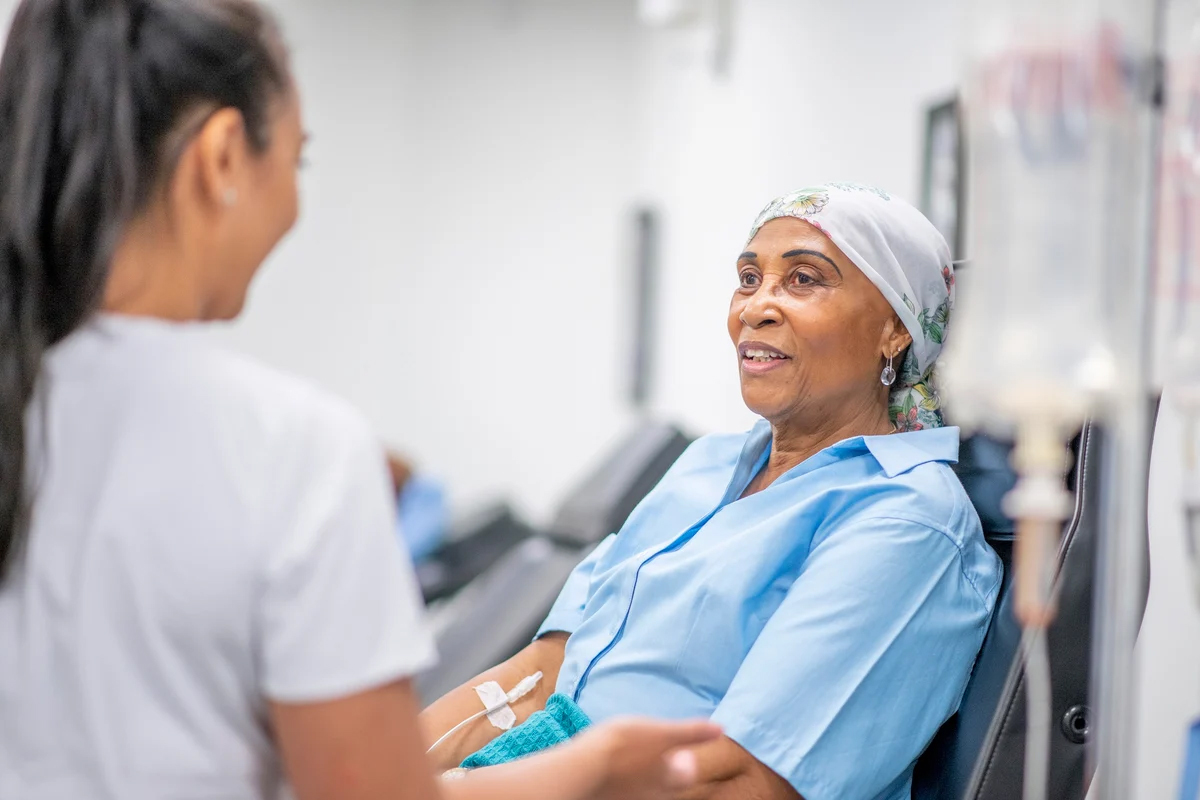The National Precision Oncology Program (NPOP) is a big step forward in fighting cancer. It uses detailed genetic tests and combines data to give personalized care.

Started in 2016, NPOP is part of the White House Cancer Moonshot. It wants to make genetic testing common for cancer patients. This helps doctors find the best treatments for each patient’s unique cancer.
NPOP is key to better care and a better life for patients. It’s a big step towards top-notch healthcare for everyone, including international patients.
Key Takeaways
- The National Precision Oncology Program (NPOP) was launched in 2016 as part of the White House Cancer Moonshot initiative.
- NPOP utilizes comprehensive genomic profiling and data integration for personalized cancer care.
- The program aims to make molecular testing available to determine prognosis or treatment for cancer patients.
- NPOP is revolutionizing cancer care by enabling targeted therapies based on individual tumor genetics.
- The program is crucial for improving patient outcomes and quality of life.
The Foundation and Purpose of NPOP
The National Precision Oncology Program (NPOP) is changing how we treat cancer. It uses personalized medicine to focus on each cancer’s unique genetic traits. This approach helps doctors create treatment plans that work better and cause fewer side effects.
The Need for Personalized Cancer Treatment
Cancer is a complex disease with unique genetic mutations in each patient. Traditional treatments often don’t fit everyone well. Personalized cancer treatment changes this by tailoring therapy to each patient’s cancer. NPOP has helped over 900 patients with metastatic colorectal cancer get biomarker testing, revealing important genetic information.

Establishment and Core Mission
NPOP started in 2016 with a mission to test cancer patients’ genes for treatment. It aims to create detailed testing guidelines for all cancer types. This ensures patients get the right treatment based on their genetic makeup. NPOP works with the National Cancer Institute and other healthcare groups to advance cancer care and better patient outcomes.
Key Stakeholders and Partnerships
NPOP works with many partners to achieve its goals. These include the NCI, healthcare groups, and research centers. Their collaboration is key to developing testing guidelines and helping VA oncologists understand complex results. Together, they push for new cancer treatments and better patient care.
Understanding Precision Oncology in Modern Healthcare
Genetic information helps precision oncology offer personalized cancer care. This change comes from advances in genomic medicine and biomarker-driven treatments.

Genomic Medicine Fundamentals
Genomic medicine is key in precision oncology. It lets doctors understand a patient’s cancer through genetic analysis. They look at the tumor’s genes to find specific targets for treatment.
Comprehensive genomic profiling is vital. It checks the tumor’s genome for targets. This helps pick the best treatment for each patient.
Biomarker-Driven Treatment Selection
Biomarkers are important in precision oncology. They are molecules in the body that show disease or health. In cancer, biomarkers help find the right treatments for patients.
Biomarker tests look at the tumor’s genome for treatments. This ensures patients get the right care for their cancer. It boosts the chance of a good outcome.
From Population-Based to Individualized Care
Precision oncology moves from general to personalized care. Old treatments fit the average patient. Precision oncology treats each patient based on their unique cancer.
This approach improves results and lowers side effects. The VA’s work on prostate cancer in veterans shows its success. It helps the 15,000 veterans affected each year.
Core Components of the National Precision Oncology Program
The success of NPOP comes from its main parts. These include genomic profiling technologies, data integration systems, and a strong clinical implementation plan. Together, they offer personalized cancer care based on the latest in genomic medicine.
Comprehensive Genomic Profiling Technologies
NPOP uses next-generation sequencing (NGS) and other top technologies for comprehensive genomic profiling. This method gives a deep look at tumor genomes. It helps find specific mutations and changes that guide treatment choices.
- Next-generation sequencing (NGS) for detailed genomic analysis
- Advanced bioinformatics tools for data interpretation
- Integration of genomic data with clinical records
Advanced Data Integration Systems
NPOP shines in combining different data types. It includes radiation therapy results, sequencing data, and patient records. This creates a huge cancer dataset. It offers deep insights into treatment effectiveness.
- Radiation therapy outcomes data collection
- Sequencing data analysis and integration
- Clinical records integration for complete patient profiles
Clinical Implementation Framework
The clinical framework of NPOP makes sure advanced tech and data analysis help in real-world care. It guides treatment choices, boosts patient results, and keeps improving with new findings.
By linking these key parts, NPOP offers top-notch cancer care. It’s tailored to each patient’s needs. We aim to lead in precision oncology and better cancer patients’ lives with our detailed and caring approach.
NPOP’s Revolutionary Database Infrastructure
NPOP has a groundbreaking database at its core. It’s changing how we tackle cancer. This system brings together different types of data, making it a key resource for research and ensuring quality care.
Integration of Radiation Therapy Outcomes
The NPOP database includes radiation therapy results. This gives insights into how well treatments work. It helps doctors make better plans for their patients.
Key benefits of this integration include:
- Enhanced understanding of radiation therapy effectiveness
- Improved treatment planning for cancer patients
- Advancements in personalized medicine
Sequencing Data Collection and Analysis
NPOP’s database also handles a lot of sequencing data. It looks closely at tumor genetics to find biomarkers. This helps doctors create more precise treatment plans.
The integration of sequencing data enables:
- Precision in identifying genetic mutations
- Targeted therapy selection based on genetic profiles
- Continuous improvement in treatment outcomes
Creating One of Healthcare’s Largest Integrated Cancer Datasets
NPOP is making a huge cancer dataset by mixing radiation therapy results, sequencing data, and clinical records. This dataset includes genetic findings, patient details, treatments, and outcomes.
“The integration of diverse data types within NPOP’s database infrastructure represents a significant advancement in cancer research and treatment.” –
Expert Opinion
The NPOP database is set to make big strides in cancer care. It offers a wealth of information for research, quality checks, and tailored treatments.
Precision Oncology Success: The Colorectal Cancer Initiative
Our Colorectal Cancer Initiative shows how precision oncology is changing cancer care. It has been a big success, helping over 900 patients with advanced colorectal cancer. They got biomarker tests that led to better treatments.
Biomarker Testing for Over 900 mCRC Patients
More than 900 patients with advanced colorectal cancer got biomarker tests. These tests found important genetic changes in genes like KRAS, NRAS, BRAF, MSI-H, TMB-H, and NTRK fusions. This lets us tailor treatments to each patient’s unique genetic makeup.
Advanced genomic profiling technologies gave us deep insights into each patient’s cancer. This info is key to choosing the best treatments.
Impact on Targeted and Immunotherapy Utilization
Biomarker testing has greatly increased the use of targeted and immunotherapies in mCRC patients. These treatments are not just improving survival rates but also the quality of life.
- Targeted therapies are being used more effectively, thanks to the identification of specific genomic mutations.
- Immunotherapies are being applied in cases where biomarker testing has revealed relevant indicators such as MSI-H or TMB-H.
- The overall effect is a more personalized approach to cancer treatment, moving away from one-size-fits-all methodologies.
Our Colorectal Cancer Initiative proves the power of precision oncology in changing cancer care. We’re dedicated to better understanding and using biomarker testing and targeted therapies. This will help improve outcomes for patients with advanced colorectal cancer.
NPOP’s Approach to Veterans’ Cancer Care
NPOP leads in bettering cancer treatment for veterans, using the newest in precision oncology. Our method is all-inclusive, focusing on the special needs of veterans, mainly with prostate cancer.
Addressing Prostate Cancer in the Veteran Population
Prostate cancer is the top cancer in U.S. veterans, hitting about 15,000 each year. NPOP teamed up with the Prostate Cancer Foundation to start the Precision Oncology Program for Cancer of the Prostate (POPCaP). This is a big step toward better treatment results.
The POPCaP program aims to give tailored treatment protocols based on each tumor’s genetic makeup. This ensures veterans get the best care they can.
Tailored Treatment Protocols for 15,000 Annual Cases
Our treatment plans are made for veterans with prostate cancer. We look at each tumor’s genetics to find the best treatments. This helps improve patient results.
- Personalized medicine approaches for prostate cancer.
- Advanced genomic profiling to guide treatment decisions
- Integration of clinical data to support precision oncology
Integration with VA Healthcare Systems
NPOP’s work gets better with our partnership with the VA healthcare systems. This makes care smoother and gets veterans the newest precision oncology.
Working with VA systems helps us streamline treatment processes. It cuts down on care barriers. This improves the lives of veterans with cancer.
How POP Medicine Transforms Cancer Treatment Delivery
POP medicine is leading the way in changing cancer treatment. It makes treatments more personal and effective. We use genetic info and advanced systems to tailor treatments to each patient’s cancer.
Personalized Treatment Planning from Diagnosis
Right after diagnosis, precision oncology helps doctors create personalized treatment plans. This ensures patients get therapies that match their tumor’s genetic profile.
Genomic profiling is key. It helps us find biomarkers linked to the cancer. This info is vital for picking the right treatment.
Reducing Trial-and-Error in Cancer Treatment
POP medicine cuts down on trial-and-error in cancer treatment. Knowing a patient’s cancer genetics helps us skip ineffective treatments. This makes treatment faster and more focused.
- Identifying genetic mutations that inform treatment decisions
- Selecting targeted therapies based on the tumor’s genetic profile
- Monitoring patient response to adjust treatment plans as needed
Measuring Improved Patient Outcomes
NPOP’s main goal is to better patient outcomes. We track how precision oncology affects patient care. This helps us improve treatments and ensure patients get the best care.
- Tracking patient response to targeted therapies
- Analyzing outcomes data to inform future treatment decisions
- Enhancing patient care through data-driven insights
By using POP medicine in cancer treatment, we’re not just improving patient care. We’re also pushing the field of oncology forward. Our dedication to top-notch healthcare and support for international patients is at the heart of our mission.
Implementing Precision POP in Healthcare Facilities
Getting precision POP to work in healthcare needs a strong setup and trained people. As we aim for more tailored cancer care, it’s key that places are ready to offer precision POP well.
Infrastructure Requirements
Setting up precision POP takes a big investment in tools, like genomic sequencing technologies and data integration systems. These help analyze complex genetic data, vital for making treatment plans that fit each patient.
Staff Training and Expertise Development
Training staff is also key to precision POP success. Healthcare workers need to understand genetic data and create treatment plans that fit each patient. They must keep learning to stay current with new precision oncology discoveries.
Quality Assurance Protocols
To make sure precision POP is top-notch, healthcare places must have strong quality checks. These should cover everything from genetic testing to treatment planning. This way, they can keep getting better at helping patients.
By focusing on these areas, healthcare places can make precision POP work. This means they can give more personalized cancer care and better results for patients.
Challenges and Future Directions in Precision Oncology
Advancing precision oncology comes with several challenges. We must tackle these to ensure fair and effective cancer treatment. As we move forward, addressing these challenges is key to unlocking precision oncology’s full promise.
Access and Equity Considerations
Ensuring access and equity is a major hurdle for precision oncology. Not all patients can get genetic testing and targeted therapies. This creates care disparities. We must work to fix these issues so all patients can benefit.
To solve this, we need to improve insurance for genetic tests and expand clinical trial access. We also must educate diverse groups about precision oncology. This will help ensure everyone gets a fair chance at treatment.
Data Privacy and Security Frameworks
Maintaining data privacy and security is another big challenge. Precision oncology deals with sensitive genetic data. We must protect this data from misuse. We’re committed to creating strong privacy and security measures. This means using encryption and secure storage for data. We also need clear policies for data access and use. By focusing on data privacy, we build trust with patients and advance precision oncology.
Emerging Technologies and Methodologies
The field of precision oncology is always changing. New technologies and methodologies keep coming. To lead in this field, we must adapt and use these new tools.
This means investing in research and working with industry partners. By embracing innovation, we can better patient outcomes and grow precision oncology.
By tackling these challenges and embracing new ideas, we can make precision oncology better. Our dedication to overcoming these hurdles is essential for precision oncology’s success.
Aligning NPOP with Institutional Missions and Values
The National Precision Oncology Program (NPOP) is key to aligning with healthcare missions and values. It aims to improve cancer treatment by adding precision oncology to healthcare. This makes cancer care better for everyone.
NPOP’s success depends on matching with healthcare providers’ missions. It’s not just about new tech or methods. It’s about a culture that values innovation, patient care, and always getting better.
Supporting Global Competitiveness Through Updated Protocols
To stay ahead globally, healthcare needs the latest protocols and tech. NPOP helps by:
- Offering top genomic profiling tech
- Helping integrate advanced data systems
- Keeping clinical frameworks current and effective
This way, NPOP lets healthcare institutions offer cutting-edge treatments. These treatments are based on the latest research.
Facilitating Multidisciplinary Improvement
Multidisciplinary improvement is NPOP’s core mission. We achieve this by:
- Encouraging teamwork among healthcare fields
- Sharing best practices and research
- Supporting ongoing education for healthcare pros
This teamwork makes cancer care more complete. It meets the complex needs of patients.
Embodying Values of Innovation and Patient-Centered Care
NPOP is dedicated to innovation and patient care. We do this by:
- Creating treatment plans that fit each patient’s needs
- Using the latest in precision oncology
- Always looking to improve cancer care
By aligning with healthcare missions, NPOP is set to greatly impact cancer care. This will be true both nationally and globally.
Conclusion: The Transformative Impact of the National Precision Oncology Program
The National Precision Oncology Program (NPOP) has changed cancer care a lot. It uses precision oncology to give patients care that fits them best. This has made treatments better and life quality higher.
NPOP’s big change is in how it treats cancer. It uses advanced tests and data to make treatments just right for each patient. This means less guesswork and better care for everyone.
NPOP is leading the way in precision oncology. It keeps pushing for better cancer care. We focus on making care all about the patient and working together to improve.
NPOP’s success shows how precision oncology can change cancer treatment worldwide. We’re excited to keep working in this field. We aim to make even more progress in cancer care.
FAQ
What is the National Precision Oncology Program (NPOP)?
What is precision oncology?
What are the core components of NPOP?
How does NPOP’s database infrastructure contribute to cancer care?
What is the significance of the Colorectal Cancer Initiative under NPOP?
How does NPOP approach veterans’ cancer care?
What is POP medicine, and how does it transform cancer treatment delivery?
What are the challenges and future directions in precision oncology?
How does NPOP align with institutional missions and values?
What is the impact of the National Precision Oncology Program on cancer treatment?
What is the role of the NCI Virtual Clinical Trials Office in precision oncology?
How does precision oncology improve patient outcomes in prostate cancer?
References
- National Cancer Institute. (2016). National Precision Oncology Program (NPOP) Launched to Advance Personalized Cancer Care. Retrieved September 22, 2025, from https://www.cancer.gov/news-events/press-releases/2016/npop-launch

































